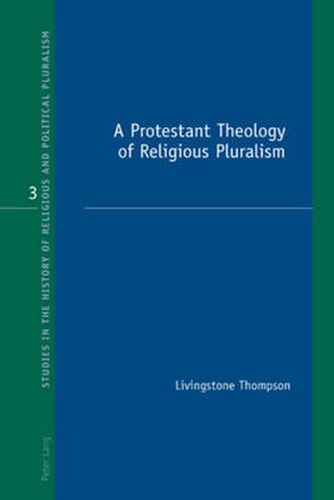Readings Newsletter
Become a Readings Member to make your shopping experience even easier.
Sign in or sign up for free!
You’re not far away from qualifying for FREE standard shipping within Australia
You’ve qualified for FREE standard shipping within Australia
The cart is loading…






In this book three main things have been accomplished. First, it locates the emergence of religious pluralism as a problem for Christian theology. Secondly, it shows the critical weaknesses in the approaches to pluralism that we find in the works of Gavin D'Costa, George Lindbeck and John Hick, all major players in the field of religious pluralism. Retrieving theological material from seventeenth-century Comenius and eighteenth-century Zinzendorf, the book shows that the Protestant tradition has suitable theological material that can better serve the development of a theology of religious pluralism. Thirdly, the book enters into dialogue with Islam and highlights exciting new approaches to addressing the issues of salvation, the Qur'an and Christology. One critical outcome of the book is that it breaks new ground in showing the limitations of liberation theology and proposes a fascinating, new, pluralism-sensitive hermeneutical approach to contextual theology.
$9.00 standard shipping within Australia
FREE standard shipping within Australia for orders over $100.00
Express & International shipping calculated at checkout
In this book three main things have been accomplished. First, it locates the emergence of religious pluralism as a problem for Christian theology. Secondly, it shows the critical weaknesses in the approaches to pluralism that we find in the works of Gavin D'Costa, George Lindbeck and John Hick, all major players in the field of religious pluralism. Retrieving theological material from seventeenth-century Comenius and eighteenth-century Zinzendorf, the book shows that the Protestant tradition has suitable theological material that can better serve the development of a theology of religious pluralism. Thirdly, the book enters into dialogue with Islam and highlights exciting new approaches to addressing the issues of salvation, the Qur'an and Christology. One critical outcome of the book is that it breaks new ground in showing the limitations of liberation theology and proposes a fascinating, new, pluralism-sensitive hermeneutical approach to contextual theology.